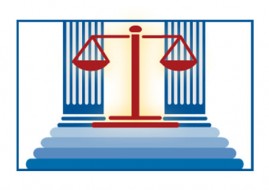Conflicts of Interest: An Overview
By Mary C. Daly [Originally published in NYPRR November 1998]
Probably no other provisions in the New York Code of Professional Responsibility create as much day-to-day confusion for lawyers as those dealing with conflicts of interest. The sources of the confusion are multiple. First, the provisions are poorly drafted. Second, their interpretation by the courts and ethics committees is not consistent. Third, they apply continuously throughout a representation, requiring lawyers to be constantly alert to new facts and issues that may create conflicts of interest where none previously existed. Fourth, the Code does not directly address positional conflicts between or among clients.
The failure to identify and respond appropriately to conflicts can have serious consequences. In litigation, the failure may precipitate a successful motion for disqualification. The motion may provoke a permanent rupture in a long-standing lawyer-client relationship and damage the lawyer’s professional reputation. In some cases, a lawyer may be forced by a court or by compelling business considerations to return a legal fee already earned. A grievance committee may sanction a lawyer for the unethical conduct. Finally, ignoring a conflict of interest may violate the duty of care that a lawyer owes a client and constitute a breach of a fiduciary duty, both of which may lead to civil liability.
The standards governing most conflicts of interest are found in DR 5-101 through DR 5-110, 22 NYCRR §1200.20–29. (Conflicts involving former judges, former government attorneys, and opposing spouses are governed by DR 9-101.) Although these rules are poorly drafted, the public policy animating them is self-evident. They serve to foster a lawyer’s exercise of independent professional judgment on behalf of a client. From the Code’s perspective, the three greatest threats to independence come from the lawyer’s own interests, from ethical obligations owed to present or former clients, and from third parties whose financial or other involvement in the representation may prompt them to interfere with the lawyer-client relationship.
While insisting that the preservation of a lawyer’s independent judgment is fundamental to the maintenance of a lawyer-client relationship, the Code also respects a client’s autonomy. It attempts to balance professional judgment and client autonomy by permitting a client to consent to a conflict. Indeed, at least one bar association ethics committee in New York has gone so far as to approve the concept of an advance waiver. [N.Y. County Lawyers Association Op. 724 (1998).] In some circumstances, however, the courts or ethics committees have concluded that a conflict was so severe that client consent was ethically impossible. The Code generally conditions the client’s consent on full disclosure and, in the instance of multiple representations, on the objective determination that “it is obvious that the lawyer can adequately represent the interest of each.” [DR 5-105(C).] A lawyer considering whether to seek a client’s consent to a conflict should heed two warnings. First, the outcome of a post hoc review is always difficult to predict. No matter how careful the lawyer was in identifying the conflict and explaining it to the client, a court may still fault the lawyer’s conduct. Second, an objective review may reveal ethical infirmities with the lawyer’s representation that the lawyer simply did not perceive. The lawyer’s subjective evaluation is generally irrelevant to a motion for disqualification and to liability in both a disciplinary proceeding and a civil suit for malpractice or breach of a fiduciary duty.
The conflict of interest provisions have traditionally focused on the client’s relationship with an individual lawyer. Law firms and associated lawyers entered into the analysis only to the extent it was necessary to resolve questions of imputation. This radically changed, however, in 1996, when the Appellate Divisions added a new subsection (E) to DR 5-105. Subsection (E) places affirmative recordkeeping obligations on a law firm. A law firm must now keep a record of prior engagements, create the record “at or near the time of such engagements,” and have policy implementing a system for checking proposed engagements against current and former engagements. Subsection (E) does not suggest any particular procedure or methodology for the system. Solo practitioners and small firms are free to maintain paper records and conduct manual searches, although they should seriously consider adopting a reliable computer program for identifying conflicts. Medium and large firms must obviously rely on electronic records and computer-based searches. Evaluating compliance with this subsection will entail a fact-specific investigation. The more sophisticated the system and the more comprehensive its scope, the less likely it is that a violation of DR 5-105(E) will occur.
The failure to maintain the records or to implement a conflicts-checking policy is an independent violation of DR 5-105(E) by the law firm. Even if the law firm did not undertake a prohibited representation, it can be sanctioned for non-compliance. Moreover, if the law firm’s failure “is a substantial factor” in causing a lawyer’s violation of subsection (D), the imputation provision, the law firm as well as the individual lawyer is subject to discipline.
Mary C. Daly is the James H. Quinn Professor of Legal Ethics at Fordham Law. She is editor of The New York Code of Professional Responsibility: Opinions, Commentary, and Caselaw. Professor Daly is the Chair of the Committee on Professional and Judicial Ethics of the Association of the Bar of the City of New York.
DISCLAIMER: This article provides general coverage of its subject area and is presented to the reader for informational purposes only with the understanding that the laws governing legal ethics and professional responsibility are always changing. The information in this article is not a substitute for legal advice and may not be suitable in a particular situation. Consult your attorney for legal advice. New York Legal Ethics Reporter provides this article with the understanding that neither New York Legal Ethics Reporter LLC, nor Frankfurt Kurnit Klein & Selz, nor Hofstra University, nor their representatives, nor any of the authors are engaged herein in rendering legal advice. New York Legal Ethics Reporter LLC, Frankfurt Kurnit Klein & Selz, Hofstra University, their representatives, and the authors shall not be liable for any damages resulting from any error, inaccuracy, or omission.
Related Posts
« How Bar Association Ethics Committees Operate Departing Partners in the Grey Zone »







